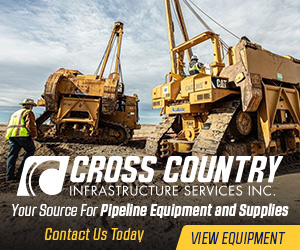U.S. Department of Labor Issues Guidance to Employers to Help Protect Oil and Gas Workers During the Coronavirus Pandemic
WASHINGTON, DC – The U.S. Department of Labor’s Occupational Safety and Health Administration (OSHA) has released coronavirus-related guidance to reduce the risk of exposure to the coronavirus for oil and gas workers.
Employers with workers engaged in the oil and gas industry should remain alert to changing conditions, and implement infection prevention measures accordingly. The complete news release is available here.
OSHA Offers New Guidance for Construction on Pandemic, Masks
On May 27, OSHA posted new guidance for the construction industry with specific tips for engineering controls, administrative controls, topics for training, and more.
Greg Guidry, Ogletree Deakins, told APCA that the guidance is notable because federal OSHA formally acknowledges that “[c]loth face coverings are not PPE.” This is important because it relieves employers of any requirement to conduct written worksite assessments and training for face coverings. Nevertheless, OSHA recommends their use in construction as a public health measure.
The guidance is at www.osha.gov/SLTC/covid-19/construction.html.
Ogletree Deakins Offers Return to Work Guide
Ogletree Deakins, who has provided invaluable information for americanpipeline.org throughout the pandemic and to APCA for many years, has prepared a detailed Return to Work Guide that will help you develop plans to return employees to work and/or the workplace.
In short, with input from more than 30 highly experienced labor and employment lawyers, the Guide contains more than 45 pages of written analysis and recommendations on common return to work issues, plus 23 templates, flowcharts, and checklists as practical tools to help you craft and implement a strategic and safe return to work process. The firm is hosting a Return to Work webinar (https://ogletree.com/webinars/2020-04-23/return-to-work-a-guide-for-getting-the-workforce-back-into-the-workplace/) this Thursday, April 23, to discuss these and related issues.
OSHA Considers Employer’s Good Faith Efforts When Enforcing Compliance During Coronavirus Pandemic
The U.S. Department of Labor’s Occupational Safety and Health Administration (OSHA) has issued interim guidance to advise compliance safety and health officers to evaluate an employer’s good faith efforts to comply with safety and health standards during the coronavirus pandemic.
Current infection control practices may limit the availability of employees, consultants, or contractors who normally provide training, auditing, equipment inspections, testing, and other essential safety and industrial hygiene services. Business closures and other restrictions may also preclude employee participation in training if trainers are unavailable and access to medical testing facilities may be limited or suspended.
Ogletree Deakins Provides COVID-19 Resources
The following information was sent to APCA by Greg Guidry, of Ogletree, Deakins, Nash, Smoak & Stewart, P.C. Guidry speaks at all APCA conventions and mid-year meetings and is a regular contributor to APCA's Pipeline Contractors Journal.
Due to the mountain of information in our COVID-19 Resource Center, we’ve reorganized it by topic and made it more user friendly. It contains new updates from the U.K. and Canada, as well as a summary of OSHA's New Enforcement Guidance and our regularly updated Chart Summarizing Both State & Local Closure Orders and Chart Summarizing Orders to Screen Employees for Symptoms & Provide Protective Measures.
SBA Offers Debt Relief on Existing Loans
The U.S. Small Business Administration (SBA) is providing a financial reprieve to small businesses during the COVID-19 pandemic.
Last week, APCA provided information on the CARES Act and the nearly $350 billion it allocated to support emergency loans to qualifying businesses through the Paycheck Protection Program. The Act also includes $17 billion to subsidize existing small business loans.
CISA Guidance on the Essential Critical Infrastructure Workforce: Ensuring Community and National Resilience in COVID-19
The Cybersecurity and Infrastructure Security Agency (CISA) released the Version 2.0 (attached) of its Essential Critical Infrastructure Workforce advisory liston March 28 to help state/local entities protect their communities while ensuring continuity of functions critical to public health and safety as well as economic and national security. APCA submitted comments on a previous version of this guidance last week. CISA noted that the list should not be considered a federal directive or standard but is intended to be the exclusive list of critical infrastructure sectors, workers, and functions. It “identifies workers involved in the construction and services that are typically essential to the viability of maintaining and repairing critical infrastructure, including preforming the construction who support crucial supply chains and enable functions for critical infrastructure.”
Trump Signs CARES Act to Rally Nation from Virus Outbreak
Today [March 27], President Trump signed the Coronavirus Aid, Relief, and Economic Security Act (CARES Act), the $2 trillion stimulus package that is the third phase of the federal government's response to the COVID-19 pandemic. Importantly for APCA members, the bill authorizes emergency loans to distressed businesses.
With respect to small businesses, the CARES Act
* Establishes, and provides funding for, forgivable bridge loans; and
* Provides additional funding for grants and technical assistance.
The Act also provides funding for $1,200 tax rebates to individuals, with additional $500 payments per qualifying child. The rebate begins phasing out when incomes exceed $75,000 (or $150,000 for joint filers).
The CARES Act, through the Paycheck Protection Program, allocates almost $350 billion to support emergency loans to qualifying businesses.
Below is guidance on the Paycheck Protection Program from the Senate Committee on Small Business & Entrepreneurship. You can learn more on the Small Business Administration website: https://www.sba.gov/funding-programs/loans/paycheck-protection-program.
Paycheck Protection Program FAQs for Small Businesses
U.S. Department Of Labor Publishes Guidance Explaining Paid Sick Leave And Expanded Family and Medical Leave Under The Families First Coronavirus Response Act
WASHINGTON, DC – Today, the U.S. Department of Labor’s Wage and Hour Division (WHD) announced its first round of published guidance to provide information to employees and employers about how each will be able to take advantage of the protections and relief offered by the Families First Coronavirus Response Act (FFCRA) when it takes effect on April 1, 2020.
Read the detailed announcement
Memorandum on Identification of Essential Critical Infrastructure Workers During Covid-19 Response
As the Nation comes together to slow the spread of COVID-19, on March 16th, the President issued updated Coronavirus Guidance for America. This guidance states that:
If you work in a critical infrastructure industry, as defined by the Department of Homeland Security, such as healthcare services and pharmaceutical and food supply, you have a special responsibility to maintain your normal work schedule.
Read the entire memorandum
Message You Can Share
It’s important to show your workers that you care about their health and safety at work and at home during times of uncertainty. Talk to your workers and ask them what they need to stay safe. Involve workers in decision-making to determine the best way to stay safe while maintaining continuity of operations.
U.S. Department of the Treasury, IRS and the U.S. Department of Labor Announce Plan to Implement Coronavirus-Related Paid Leave for Workers and Tax Credits for Small and Midsize Businesses to Swiftly Recover the Cost of Providing Coronavirus-Related Leave
March 20, 2020 - WASHINGTON, DC – Today the U.S. Treasury Department, Internal Revenue Service and the U.S. Department of Labor announced that small and midsize employers can begin taking advantage of two new refundable payroll tax credits, designed to immediately and fully reimburse them, dollar-for-dollar, for the cost of providing Coronavirus-related leave to their employees. This relief to employees and small and midsize businesses is provided under the Families First Coronavirus Response Act, signed by President Trump on March 18, 2020.
Read the detailed announcement
Page 5 of 11







